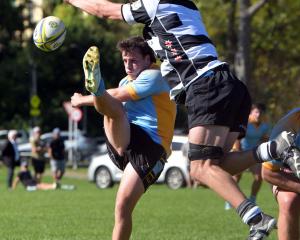

In New Zealand our law is based around a system involving two ways of creating the rules we live by.
We have legislation passed by Parliament. Beside these laws we have common law, which involves how the judges interpret the laws Parliament passes, and how they fill in the gaps not covered by Parliament.
Our democracy depends on elected representatives having the ultimate power to decide on the laws which we must all live by in New Zealand.
The Treaty is considered part of our constitutional framework. There is legislation giving life to where the Treaty fits called the Treaty of Waitangi Act, which provides for the Waitangi Tribunal to "make recommendations on claims relating to the practical application to the Treaty and to determine whether certain matters are inconsistent with the principles of the Treaty".
It makes recommendations: Parliament does not have to do what the Waitangi Tribunal says.
The Waitangi Tribunal has now taken a step further by finding that the government is in breach of its Treaty obligations in moving to repeal section 7AA of the Oranga Tamariki Act.
It said that there were clear breaches of the guarantee to Māori of self-determination. This means that the tribunal is now attempting to tell the government what laws it can and cannot pass.
It also appears to have the view that the Treaty is there for Māori, not an arrangement between two parties.
Tikanga, defined as the right way of doing things for Māori, has come into focus through the courts’ interpretation of laws.
It has recently been considered by the Supreme Court when it allowed the Peter Ellis case to continue after his death.
The Supreme Court described tikanga as being relevant to our common law.
But determining that tikanga can and should be taken into account in the same way we use common law is fraught.
Laws in a democracy need to apply to all, to be known about or at least to be able to be known, and they must be able to be changed by our elected representatives when they no longer serve our needs.
Tikanga as it is currently being championed is none of these things.

His explanation of the part being played by a local marae included the comment "... you call it an inducement; we call it maanaaki ...".
We have rules against "inducements" in our electoral processes. The idea that inducements are acceptable for Māori on the basis of maanaaki, cannot sit alongside our laws for everyone, even if tikanga for Māori involves providing maanaaki for those who participate.
The majority of the Supreme Court in the Ellis case said "the relationship between tikanga and common law will evolve over time and context ..."
Where that takes us is to a place where the courts can decide from time to time even not to follow their own usual rules about interpretation of the laws of New Zealand.
The supremacy of Parliament is seriously threatened by the judiciary attempting to make up law as it sees it evolving.
This is particularly a problem when it is overlaid by some who would say only Māori can determine what a law means and what should flow from what it means.
And that the Treaty is for Māori only to interpret.
The Waitangi Tribunal and the courts are taking us on a journey towards a "make it up as you go" system ruled over by judges and informed by people chosen to be on one side of our Treaty relationship.
Added to that is the barely veiled assertion that the court system can tell the government what laws it can and cannot make.
We need to get to a place where the majority of us agree about how we honour our Treaty if we want to keep using it as a document to guide our future.
We need to respect tikanga for what it is, and not attempt to use it to make up law outside our proper systems.
Parliament must be in charge. Laws must be able to be changed by Parliament.
If the laws are not clear, or what Parliament intended, it can make new laws.
This recent activism from the judiciary may be the most important challenge this government faces.
Perhaps it will help that we have proportionally more Māori in Cabinet and in Parliament than ever before.
- Hilary Calvert is a former Otago regional councillor, MP and Dunedin city councillor.












